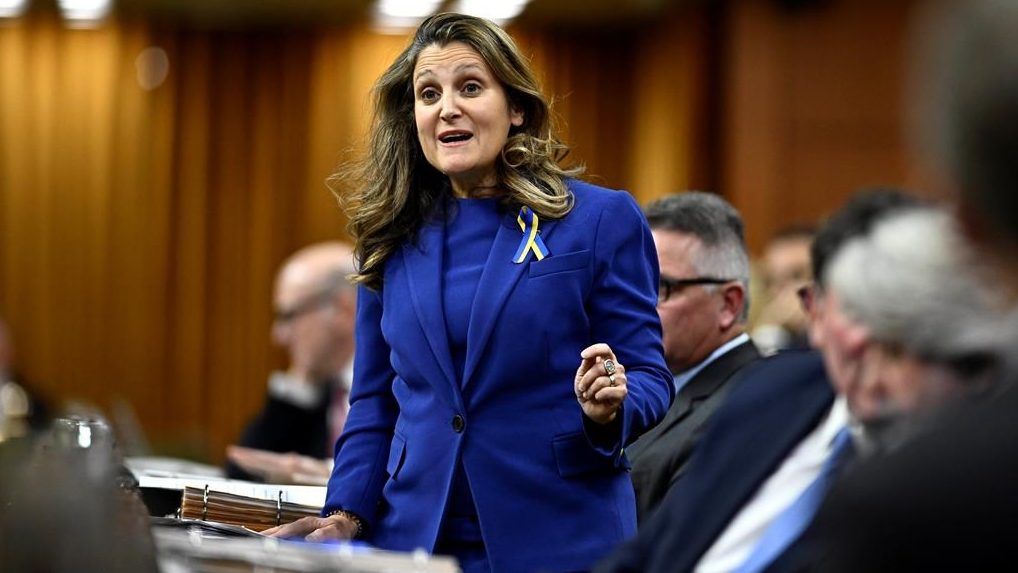Homegrown breast cancer tool could help Ontario surgery backlog
Posted May 4, 2021 5:56 pm.
Last Updated May 5, 2021 5:07 pm.
A start-up out of Sunnybrook Hospital says a new tool they’ve developed could help get patients into operating rooms faster when it comes to breast cancer surgeries.
It’s welcome news as once COVID-19 restrictions are lifted, Ontario hospitals will be dealing with a backlog of more than 257,000 surgeries.
“Molli is essentially a GPS system,” explained Dr. Frances Wright, a Sunnybrook cancer surgeon and researcher.
The three-part tool helps pinpoint the location of a breast cancer patient’s tumour ahead of an operation, letting surgeons know exactly where to focus.
A radiologist puts a magnet about the size of a sesame seed into the patient’s breast to mark the location of a tumor. Then in surgery, doctors use a wand and a tablet screen to find the seed magnet and the tumor, both of which are then removed.
This has been tested on 20 patients at Sunnybrook.
“On the little screen we have, it tells us exactly how far away we are, in millimetres, from the magnetic seed,” said Wright.
She said it’s a better option than traditional wire-guided location, which is used at many hospitals. In that procedure, before surgery, a radiologist inserts a needle into the patient’s breast and deposits a piece of wire at the site of the tumour.
“The part of the wire that is hanging out of the breast is uncomfortable, it can move, it’s not as accurate,” Wright added.
RELATED: Ontario faces backlog of more than 300,000 breast cancer mammograms
Researchers also say magnet-based technology is better than a similar procedure using radioactive grains. With radioactive seeds, hospitals need to dedicate resources to handling and tracking the sensitive material.
A British company has a similar tool using magnetic seeds, which has been approved for use in Canada. Molli is waiting for its own Health Canada approval, though it’s been cleared by the U.S. Food and Drug Administration, and launched there last weekend.
The device is coming at a stressful time for the healthcare sector.
A study of Ontario cancer surgeries found there was a 60 per cent drop in procedures when the pandemic began a year ago. Hospitals were forced to reallocate resources like beds, ventilators, and medical staff to prepare for the influx in COVID-19 cases.
RELATED: Woman dies of cancer after surgery was delayed three times due to pandemic
More than 35,000 cancer patients in the province had their surgeries delayed last spring.
With hospitals having to halt elective surgeries once again, the co-founder of Molli Surgical said he thinks his invention could help get through more breast cancer surgeries than wire-guided methods.
Currently, “to deliver breast-conserving surgery is like a three-legged stool,” said Molli’s Ananth Ravi, a former medical physicist at Sunnybrook. “Trying to hold that stool up is a highly complicated system, where everybody is juggling and trying to communicate with each other.”
Under the wire-guided procedure, a patient’s radiologist, surgeon and pathologist must work around each others’ schedules to ensure that they can complete each step, one after the other.
Ravi said his tool allows each team member to work independently, because the radiologist can insert the magnet up to a month before surgery.
“Radiology can now see more patients and increase capacity on their own because they’re not linked to surgery,” he said. “Surgery can increase capacity on their own because they’re not linked to radiology and similarly with pathology. This decoupling allows for better efficiency and will allow for a better rebound once these COVID-19 restrictions are alleviated.”










